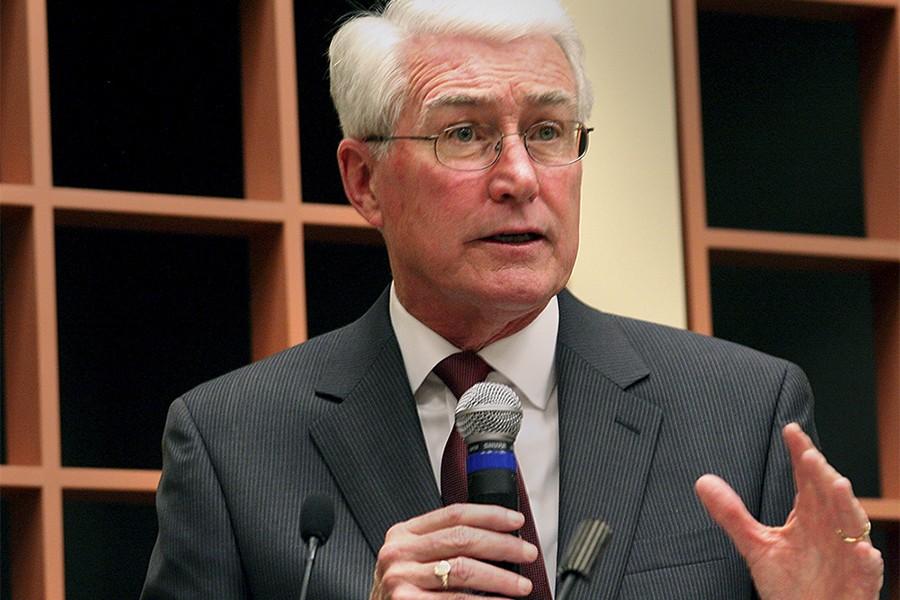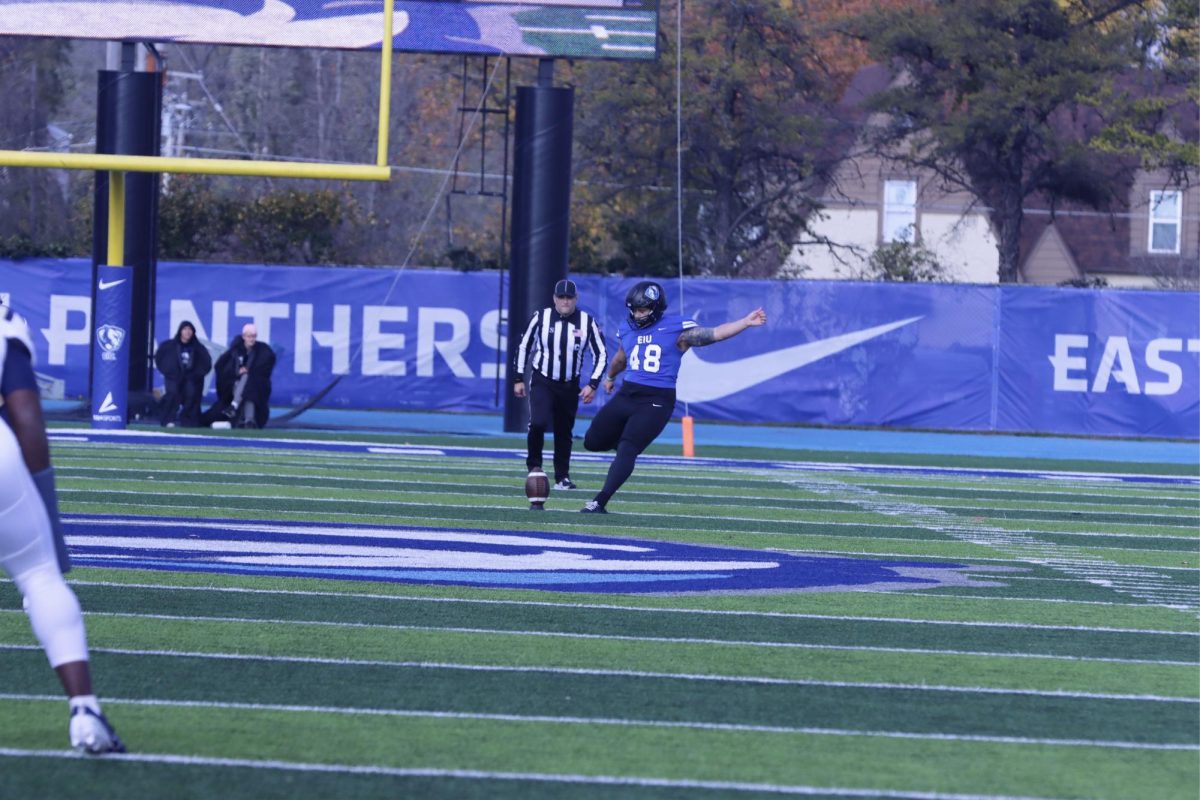State deficit may lead to university cuts
Charles Delman hopes the university can avoid layoffs if Eastern’s budget is cut.
Gov. Rod Blagojevich requested a 2.5 percent reserve in public institutions’ budget on Nov. 26.
The state of Illinois is currently facing a $2 billion shortfall in the fiscal year 2009 budget.
In an e-mail sent to the campus community, President Bill Perry outlined possible reductions that Eastern could implement if required.
The last item in the list that would be put into action is the implementation of some layoffs.
Delman, president of Eastern’s chapter of University Professionals of Illinois, said according to Perry, any layoffs of personnel would be the very last thing the university would do in the case of a budget cut. He supports this position.
“Obviously I am opposed to any layoffs, and the union would be opposed to any layoffs whether they be our members or other people who work at the university, building service workers, clerical workers, all of these people work very hard to support the university and they’re essential,” Delman said.
These workers, he said, provide essential services that are needed for students to get their education, for faculty to do their work and the workers also depend on their jobs to support their families.
“I think probably the entire university community, I would suspect, is in agreement in that we should do everything we can before we lay anybody off in any position,” Delman said.
Right now, this situation is only hypothetical, he said.
“It seems like the university administration is taking the right position of trying to protect people’s jobs and save money in any other way possible,” Delman said.
Delman said he could not disagree with that.
“I’d certainly hope that the level of cuts would not be large enough to force the university to lay people off and so at this point it’s premature to give any specific response to the possibility of layoffs because they’re hypothetical,” he said.
Another item listed in Perry’s e-mail was the reduction of summer school offerings.
“To the extent that there’s any reduction in summer school offerings, it certainly affects faculty,” Delman said. “Many faculty members rely on teaching summer school courses at least some of the time in order to supplement their income, especially those faculty members at the lower end of the pay scale, younger assistant professors whose salary is still not as high as more senior people.”
Delman said he also would not like to see the reduction of summer school, but would rather see that before layoffs.
The reduction of summer school offerings lies fourth down on the list of tentative reductions.
Sue Kaufman, president of Local 4100, said tough economic times usually would see an increase in enrollments at colleges and universities.
“Our universities have been seriously under funded by the state for going on seven years now, and everyone needs to understand that university funding is a state priority of the highest order,” Kaufman said.
She said to address student’s needs institutions need monetary support for adequate staffing at universities both within faculty and for support services.
“This is a challenge that our state legislature and the governor’s office must meet,” Kaufman said.
Delman said students and faculty members of the university should not be passive recipients to this “economic and political atmosphere.”
“People need to think about what they can do to advocate for the government at both the state and federal level in investing in education,” he said. “That’s an investment in people. It’s an investment in the future. It’s an investment in the economy.”
Delman said people need to make that investment.
“If we as citizens want our society to make that investment we have to organize and pressure the government to do what we like it to do and make that investment,” Delman said.
Emily Zulz can be reached at 581-7942 or at eazulz@eiu.edu.


































































